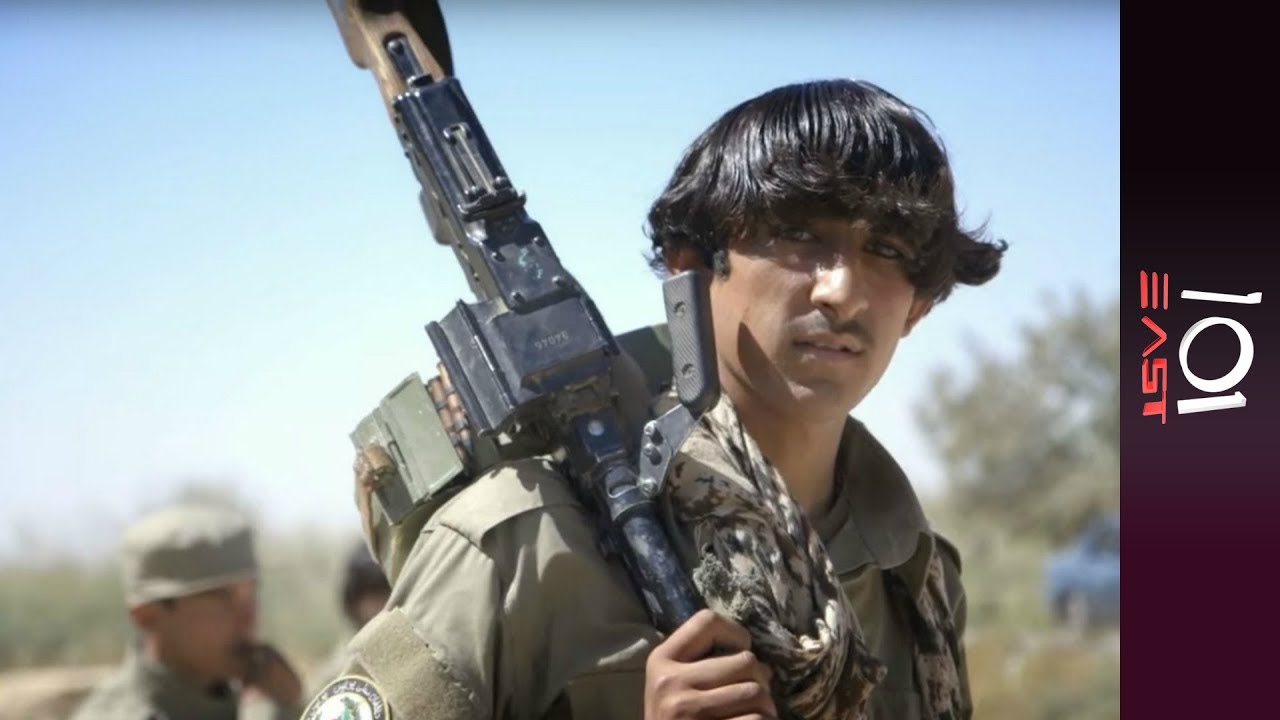🇦🇫 Afghanistan: Assassination Capital | 101 East
Whenever Rangina Hamidi returns to her hometown of Kandahar, she is filled with a deep dread. After the Taliban surrendered to the US forces in 2001, she convinced her father, Ghulam Haider Hamidi, to leave the comfort of the US to try and rebuild their homeland.
Even as friends and family were executed around them, she pleaded to her father to let them stay, to make a difference. And they did. Appointed mayor, Ghulam and his daughter, who started a local business employing widows, helped build schools, pave roads, and plant trees.
Then on a summer day in 2011, as Ghulam was meeting locals, he was killed by a suicide bomber, who had hid explosives in his turban. That was too much for Rangina. She joined the hundreds of Afghan expatriates that had returned, to only leave again.
But her departure only lasted a season. Despite believing the future for her country is bleak, Rangina came back to Kandahar, feeling a duty to the families her business, Kandahar Treasure, supports.
“What choice do I have,” she says, “the cost of not coming back is simply too great.”
To hear about the Taliban’s decade-long strategy of assassinations, 101 East presenter, Steve Chao, met Mullah Toor Jan, once one of the most feared Taliban commanders in the region. They spoke in Kandahar’s Central Stadium – the former site of Taliban executions.
“Whether he or she is an official or not, if they are useful to Afghanistan, they will be a target,” says Toor Jan. “Violence also convinces the public not to be so eager to support the government.”
Indeed, the armed group’s campaign to win back its birthplace of Kandahar began just a few years after they surrendered in 2001. Their tactic – to take out the leadership appointed by Kabul, and NATO forces, has proved a deadly and effective strategy with hundreds of Afghan “intelligentsia” killed.
The list is long, from district governors, to intelligence chiefs, to translators, to members of Kandahar’s religious scholars’ council – all those who have supported the Kabul government and Western forces. Most notable of all, was the assassination of Afghan President Hamid Karzai’s half-brother. Ahmed Wali Karzai was killed by one of his security guards inside his own house. His picture is found on billboards alongside other notable figures who have been assassinated.
But the group is not alone in being responsible for a tide of killings. In the murky and lawless world of Afghanistan’s second largest city, the Americans have spent millions training and equipping Kandahar’s police chief, General Abdul Raziq. Just 34 years old, he assumed the job after his predecessor was assassinated. But he has long been linked to the rampant drug trade, which supplies most of the world’s heroin. And he has been accused of extrajudicial killings, torture and illegal imprisonment. But he denies all accusations. He has however been credited for keeping the Taliban from winning outright control of the city. Despite being known as a fierce warlord, he too was injured during an attack in 2012 – one of 21 assassination attempts on his life.
US and NATO forces have also attempted to fight back by targeting Taliban leaders. One of them, which coalition forces claimed they had killed, was Mullah Toor Jan.
This journey back to Kandahar is in many ways an emotional one for Steve Chao. Over the years of reporting there, many of those he has interviewed along with others who have become friends, have been killed.
There are those however, who believe there is hope. Kandahar’s governor Tooryalai Wesa has survived nine assassination attempts. The last one, narrowly, when a visitor pulled a gun out of the bottom of his shoe inside the governor’s compound.
Formerly a professor in Vancouver, Wesa has managed to not only stay alive, but also work on rebuilding the infrastructure of the city and try to bring some economic benefits. Known as a shrewd administrator, he has made some positive changes. But in a city where the rule of the gun supercedes the rule of law, his abilities to effect change is limited.
And local businessmen openly worry that post-2014, when NATO pulls out, the number of assassinations will skyrocket, leaving the city utterly leaderless and without hope. That is a bleak perspective, as even Wesa himself admits that whoever controls Kandahar, will ultimately control the country.
More from 101 East on:
YouTube – http://aje.io/101eastYouTube
Facebook – http://facebook.com/101east
Twitter – http://twitter.com/aj101east
Instagram – http://instagram.com/aj101east
Website – http://aljazeera.com/101east
#AlJazeeraEnglish #101East #AfghanistanAssassins




![Private: [ID: fBgycpxLWOA] Youtube Automatic](https://nezha.pro/wp-content/uploads/2023/09/private-id-fbgycpxlwoa-youtube-a-236x133.jpg)
![Private: [ID: 5pjnizqXy-g] Youtube Automatic](https://nezha.pro/wp-content/uploads/2023/08/private-id-5pjnizqxy-g-youtube-a-236x133.jpg)
![私密內容: [ID: EKY1OChHTa0] Youtube Automatic](https://nezha.pro/wp-content/uploads/2023/08/id-eky1ochhta0-youtube-automati-236x133.jpg)
![私密內容: [ID: 4UFe4tRMZ0Y] Youtube Automatic](https://nezha.pro/wp-content/uploads/2023/08/id-4ufe4trmz0y-youtube-automati-236x133.jpg)
![私密內容: [ID: pkl8HVDagHo] Youtube Automatic](https://nezha.pro/wp-content/uploads/2023/08/id-pkl8hvdagho-youtube-automati-236x133.jpg)
![私密內容: [ID: 5daehHaqpeo] Youtube Automatic](https://nezha.pro/wp-content/uploads/2023/07/id-5daehhaqpeo-youtube-automati-236x133.jpg)
![私密內容: [ID: XxMUOi61Irs] Youtube Automatic](https://nezha.pro/wp-content/uploads/2023/07/id-xxmuoi61irs-youtube-automati-236x133.jpg)
![Private: [ID: uY5SX8c8kWI] Youtube Automatic](https://nezha.pro/wp-content/uploads/2023/10/private-id-uy5sx8c8kwi-youtube-a-236x133.jpg)
![私密內容: [ID: tobguo86Ju4] Youtube Automatic](https://nezha.pro/wp-content/uploads/2023/07/id-tobguo86ju4-youtube-automati-236x133.jpg)
![私密內容: [ID: 00P3TEP9Tx0] Youtube Automatic](https://nezha.pro/wp-content/uploads/2023/06/id-00p3tep9tx0-youtube-automati-236x133.jpg)